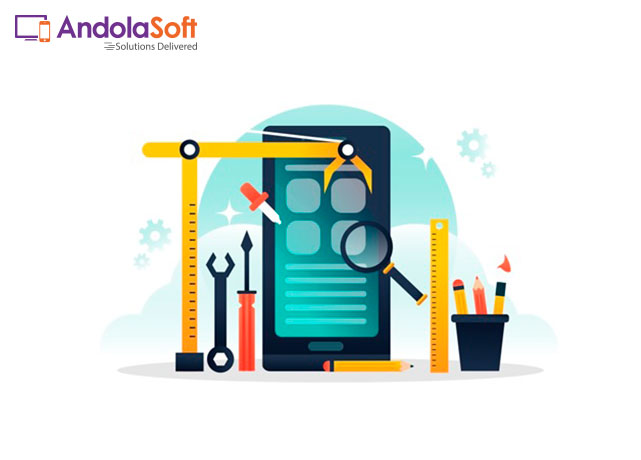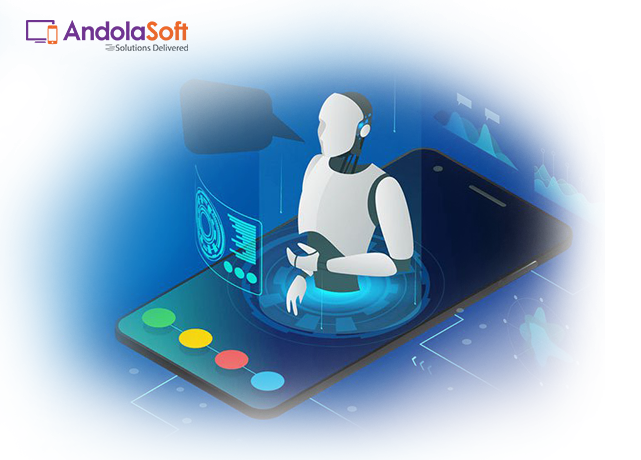Until a few years ago, artificial intelligence (AI) was just a name for a unique innovation that could make machines perform tasks that were typically reserved for humans.
Now artificial intelligence has become a buzzword in the market, especially in mobile app development.
As more and more artificial intelligence courses empower professionals to boost their careers, AI and its subset machine learning are transforming every industry for better performance and cost effectiveness.
Further, as the economy leans towards digitization and the consumers spend most of their time on smartphones, enterprises have shifted their focus to making themselves accessible on the digital medium.
As a result, the impact that artificial intelligence and machine learning could have on modern app development has caught the fancy of many innovators.
According to a report by Gartner, smart mobile apps were one of the top strategic trends of 2017, and considering the pace of innovation in the domain, this is just the beginning.
Contents
Personalized Recommendations:
Making personalized recommendations to users is one of the most effective and widely sought after application of AI in mobile app development.
As the attention span of users becomes limited, it becomes more important to supply them with relevant content to maintain user engagement.
To continuously engage users, mobile app developers design AI algorithms that can monitor the choices users make and then insert them into a learning algorithm.
As a result, the users are recommended content that they are most likely to engage with.
Such learning algorithms and recommendation systems are also one of the significant sources of revenue generation for mobile entertainment apps like Netflix, and e-commerce applications like Flipkart, Amazon etc.

(Source: artjoker.net)
Any business that runs on making relevant suggestions to users can benefit from this aspect of AI in mobile app development.
For this reason, the ability to integrate AI recommendation systems in mobile applications is one of the sought-after skills in mobile app development.
Automated Reasoning Techniques:
Automated reasoning techniques work on studying massive amounts of historical data and applying the resultant insights in solving the problem at hand.
The automated reasoning techniques make it easier for mobile app developers to optimize their functions by providing the best alternatives to perform a task.
Navigation systems are perhaps the best examples of automated reasoning.
For instance, mobile applications like Google maps and on-demand cab service, Uber, makes use of automated reasoning algorithms to optimize routes in a manner that gets users to their destinations in minimum possible time.
The automated reasoning works from travel data collected from drivers who have previously traveled from the same routes.
Adapting to User Behavior:
AI and machine learning have now evolved to learn user behavior patterns to provide them with a more seamless mobile app experience.
Through natural language processing and machine learning techniques, mobile application developers can integrate virtual assistants in the application architecture.
These virtual assistants observer user behavior, understand their preferences, develop a pattern, and then modify their functionalities in a manner that can be of best use to them.
This technique is also used by banks in their mobile apps to detect fraud in online payments.
A pattern-detecting algorithm embedded in the app design automatically tracks through each customer’s purchases, and can instantly recognize if a purchase has been made that doesn’t fit well with the usual customer behavior.
These pattern recognizing algorithms grant a degree of efficiency to mobile apps and are one of the most demanded skills in an application developer.
Voice Optimization:
The impact of voice optimization on modern mobile app development cannot be stressed enough.
Not only has it proved convenient regarding accessibility and navigability, but it has also promoted a more connected mobile ecosystem.
In 2014, as much as four billion devices were connected to the Internet; Gartner expects this figure to have risen by five times by 2019.
The Internet of Things (IoT) is not just limited to smartphones and computers, but now there are smart TVs, watches, lights, thermostats, and many more.
As homes become smart, consumers prefer all their applications in one device instead of switching from one device to another.
Voice optimization thus provides them with a universal interface for all their devices in one single mobile application.
For instance, Google Home and Amazon Alexa allow their users to manage all the connected devices through a single, voice-optimized mobile application interface.
Opportunities to Creatively Deploy Codes:
Not only are AI and ML providing meaningful add-ons in mobile applications, but they are also transforming the way in which app developers deploy their codes.
Thanks to the flexibility offered by AI, developers can release newer versions of the app more frequently, and with better enhancements.
Now that AI techniques have become accessible and can be employed by just about anyone with the relevant knowledge, application algorithms can be designed and implemented for a variety of tasks.
For instance, scanning a QR (Quick Response) code not only transmits necessary information but based on your preferences; a single scan can return information that the users are most likely to spend time with, thus significantly increasing user engagement.
Increased and prolonged engagement with users is one of the primary objectives behind the development of any application and is the most desired skill in mobile app developers.
When it comes to retaining customers through a mobile app platform, the first few sessions are incredibly crucial.
The integration of AI and machine learning techniques with mobile apps make it possible for users to have a more memorable experience with the application.
As a result, mobile application developers who have a comprehensive understanding of AI and automated learning will be in higher demand for creatively applying machine learning techniques.
Mobile app development is a rapidly evolving market, and through their behavior learning and recommendation algorithms, AI and ML make the app experience more valuable to the users.
We are at Andolasoft continuously updating ourselves with the latest algorithm of AI and ML to provide high user experience while developing a mobile app for our customers.












